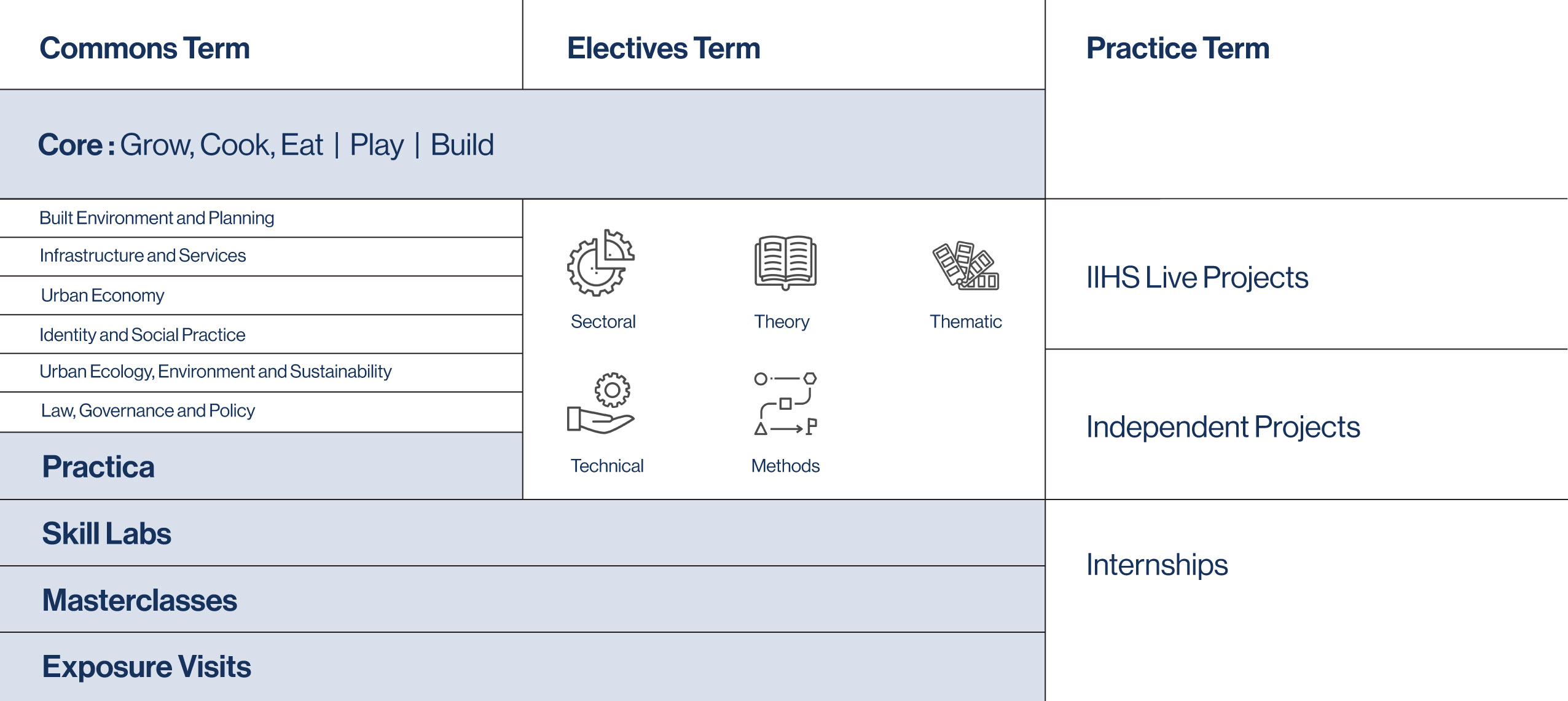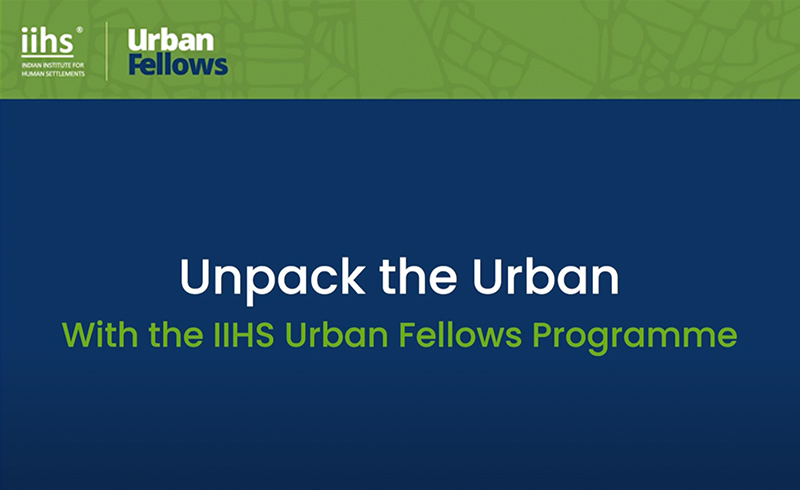UFP draws from the IIHS curriculum co-created in partnership with the world’s leading universities including the Massachusetts Institute of Technology (MIT), University College London (UCL), the University of Cape Town (UCT) and the Federal University of the ABC Region, Sao Paulo (UFABC), in addition to nearly a hundred practitioners and scholars from across India.
The UFP is spread across three terms: Commons, Electives and Practice.
Across them are multiple diverse key learning elements: Commons, Electives, Practica, Skill Labs, Core, Exposure Visits, Projects, and Internships. Watch the video to your right to get a sense of the overall structure, and explore each learning element in detail below.

Internships
Transition into a post-fellowship trajectory through guaranteed external internships

